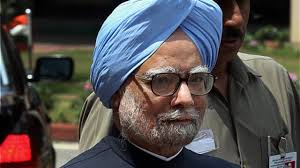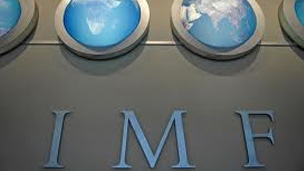All issues would be on the table, including of China issuing stapled visas to residents of India’s Arunachal Pradesh, when Prime Minister Manmohan Singh holds talks with his Chinese counterpart Li Keqiang
All issues would be on the table, including of China issuing stapled visas to residents of India’s Arunachal Pradesh, when Prime Minister Manmohan Singh holds talks with his Chinese counterpart Li Keqiang in Beijing on Wednesday.
As Manmohan Singh arrived in the Chinese capital on Tuesday evening from Moscow on the second leg of his visit, informed sources said that all issues would be discussed between the two leaders, including of stapled visas, maintaining peace and tranquillity on their over 4,000-km long boundary and the adverse trade balance.
India has stressed that the northeastern state of Arunachal Pradesh is an inalienable and integral part of India, which was reiterated by Foreign Secretary Sujatha Singh ahead of the prime minister’s two-nation tour.
“Our stand is that we will not allow someone from Arunachal Pradesh to be treated differently,” said the source.
China, which lays claim to Arunachal Pradesh and considers it “disputed”, never issued stapled visas to Indians from that state earlier and has begun the practice only since the past few years.
In fact, the issuance of stapled visas by Beijing has adversely impacted its own interests in getting an agreement on liberalised visa regime for its businesspersons to operate in India.
India is keen to go ahead with a deal on liberal visa regime with China, but it could take a while to process now.
When the stapled visa row came up, India decided to slow down, it is learnt.
Maintaining peace and tranquillity on the disputed boundary would be high on the agenda, with both sides negotiating a Border Defence Cooperation Agreement (BCDA) on the issue.
The Indian cabinet approved the blueprint of the BDCA that is aimed to prevent face-offs on the boundary. The agreement is likely to be inked during the visit.
Despite incidents like Depsang which led to a three-week face off between troops of the two countries in Ladakh earlier this year, the border issue is not considered a “hot border dispute” as there has been no firing for years, said the source.
While the potential for Depsang-like incidents exists, both sides have agreed on the need to prevent it from escalating through their established mechanisms, the source added.
India and China are also cooperating on terrorism and discussing Afghanistan where international troops are set to withdraw next year end.
“We both have an interest in Afghanistan, in preventing it from becoming a haven for terrorism like it used to..All have common interests in Afghanistan and all are agreed on what we want to see and what we can do together to help the situation,” the source said.
China has also begun acknowledging of late that terrorism is “coming out of Pakistan”, which it considers its all-weather friend.
The adverse trade issue would figure in the talks. India is seeking market access to pharmaceuticals, IT among other items.
“We have given a list to them, and they have promised to get back. We’ll keep reminding them,” the source added.
China and India are discussing setting up an industrial cluster in India and a Chinese team is scouting in India for possible sites to set up the special economic zone.
The idea would be to sell the goods produced to China or third countries, which would also help in restoring the balance of trade which is heavily skewed in China’s favour.
-IANS





